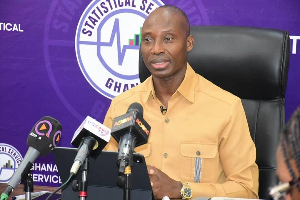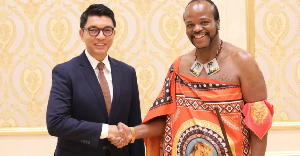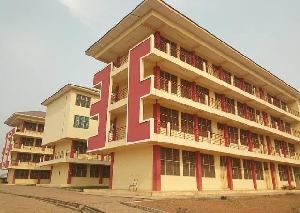Crime & Punishment of Wednesday, 26 July 2006
Source: GNA
Cociane Case: Tabiri denies taking money
Accra, July 26, GNA -- Edward Tabiri, Superintendent of Police, who is at the centre of allegations of bribery in the East Legon cocaine case on Wednesday denie d ever taking money from Ms Grace Asibi, the girl friend of a drug baron.
He said he never took money from the girlfriend of Gerardo Varquez, the Venezuelan drug baron in whose house a 38 million dollars worth of cocaine was seized in November 2005.
Mr Tabiri, however, admitted before the Justice Georgina Woode Committee that he demanded money from Ms Asibi as bait to get Mr Varquez, who was then at large and was a key witness in the case.
"I did no ask her for any specific amount and she never gave me any money till date," he told the gathering at the public hearing at the Georgina Wood Committee.
At the Committee hearing on Tuesday, Ms Asibi alleged that she had bribed Mr Tabiri to the tune of 200,000 dollars in two instalments of 170,000 dollars and 30,000 dollars to help to resolve the narcotics problem with some top Police Officers.
Mr Tabiri said before he made the demand, he had informed his superior, Mr David Asante Apeatu, Director-General, Criminal Investigation Department (CID), about the bait that would help in the investigations.
He said Mr Apeatu supported his initiative and had urged him to go ahead so that Ms Asibi would produce Varquez.
"I even went ahead and assured her that if she was able to produce Varquez, I would help him to write his statement so that he would not be implicated. All this was to coerce her produce Varquez," he said. Mr Tabiri reminded Ms Asibi of the fact that she was the informant to the cocaine bust to which she denied.
Ms Asibi said if she had information about the cocaine, she was not a fool to have gone to the Police, who would end up implicating her like they were doing now.
"I would have gone for the drug my self because Varquez had travelled," she said.
"I have lost everything including my husband and my money. Am I a fool to get involve and lose everything?" She asked Mr Tabiri. Mr Tabiri, however, alleged that Ms Asibi gave the information with the hope that the Police would act so that she (Ms Asibi) and the Police could share the cocaine after the Venezuelans were arrested. "This is not true," she said.
Mr Tabiri further put it to her that she had consistently harassed him on phone asking about her share of the deal, which she again denied. Mr Tabiri said he had consistently told her that he was not a bad Cop.
"That is not true," she replied.
Mr Tabiri reminded her of the fact that when she came to the crime scene, trying to demand her share of the booty there were cameras all around and the cameras had captured their interactions. To this she said, although she saw the cameras she did not know they belonged to the Police since the people, who were holding it were not in Police in uniform.
Ms Asibi, however, denied knowledge of the people in the picture saying she did not know any of them. Mr Tabiri, however, drew her attention to the fact that she had once asked for one of the pictures.
Mr Tabiri said he continued to be nice to Ms Asibi with the hope that she was going to produce her boyfriend, who was still at large and that the allegation by Ms Asibi was not true.
Earlier Mr Patrick Ampewuah, Deputy Director, CID, who Ms Asibi accused of phoning her to demand money as well as issuing a 12-hour ultimatum to her to leave the country or face death, denied ever making such as a call.
When a tape recording was played to the effect that Ms Asibi recorded the telephone conversation, he denied the voice was his. The Commission said it would send the tape to either the BNI or Military Intelligence for the voice to be analyzed to determine whose it was. 26 July 06












